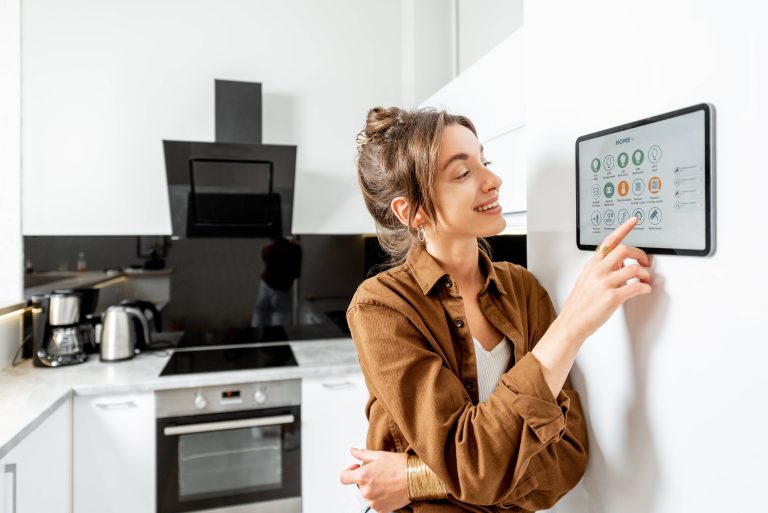
The advent of smart home devices has revolutionized the way we interact with our living spaces, promising unparalleled convenience, energy savings, and security. From voice-activated assistants and smart thermostats to internet-connected cameras and doorbells, these devices make managing our homes easier than ever before. However, as the adoption of smart home technology continues to rise, so do concerns about privacy risks associated with these devices. In this blog post, we will explore the potential privacy risks of smart home devices and provide insights into how you can safeguard your personal information.
The Convenience Conundrum
Smart home devices are designed to enhance our daily lives through automation and connectedness. For example, smart speakers like Amazon Echo or Google Nest can control lighting, play music, and answer queries. Smart locks provide keyless entry to our homes, while smart security cameras allow us to monitor our properties in real-time from anywhere in the world.
While these devices offer significant advantages, their connectivity to the internet and integration into our home networks exposes them to potential privacy risks. Here are some key concerns to be aware of:
Data Collection and Usage
One of the most significant privacy concerns with smart home devices is the vast amount of data they collect. From voice commands and video recordings to usage patterns and personal preferences, these devices gather a wealth of information about their users. This data is often stored on cloud servers, where it can be accessed by the device manufacturers and, potentially, third parties.
Manufacturers use this data to improve their products and services, but it can also be used for targeted advertising or sold to other companies. Additionally, this data becomes a valuable target for hackers, who may exploit security vulnerabilities to gain unauthorized access.
Security Vulnerabilities
Smart home devices, like any other internet-connected technology, are susceptible to hacking. Weak passwords, outdated software, and unsecured network connections can provide easy entry points for cybercriminals. Once hackers gain access to one device, they may be able to infiltrate the entire home network, compromising other connected devices and sensitive information.
For example, a hacker gaining control of a smart security camera could spy on the homeowner, while access to a smart lock could lead to unauthorized entry into the home. Therefore, it is crucial to ensure that all smart devices are secured with strong, unique passwords and regularly updated to protect against known vulnerabilities.
Voice Assistants and Eavesdropping
Voice-activated smart assistants, such as Amazon’s Alexa and Google Assistant, are always listening for their wake words. This feature, while convenient, raises concerns about the devices inadvertently recording conversations and storing unnecessary data. These recordings are often sent to cloud servers for processing, where they could potentially be accessed by unauthorized parties or used in ways that violate user privacy.
Moreover, there have been instances where voice assistants mistakenly activated and recorded private conversations, subsequently sending those recordings to contacts or saving them to the cloud. To mitigate these risks, users can review and delete stored voice recordings through the device’s settings and disable features like always-on listening if not needed.
Privacy Policies and Consent
When setting up smart home devices, users are typically required to agree to the manufacturer’s privacy policy and terms of service. These documents outline how data is collected, used, and shared, but they are often lengthy and written in legal jargon that can be difficult to understand.
It is essential for users to review these policies carefully to be aware of what data is being collected and how it will be used. Some manufacturers offer opt-out options for certain data collection practices, allowing users to retain greater control over their personal information. Additionally, users should consider choosing products from companies with strong privacy commitments and transparent data handling practices.
Mitigating Privacy Risks
The potential privacy risks associated with smart home devices should not deter users from enjoying their benefits. Instead, users can take proactive steps to safeguard their privacy while still taking advantage of smart home technology:
1. Perform Regular Software Updates: Ensure that all smart devices are running the latest firmware and software updates to protect against known vulnerabilities.
2. Use Strong, Unique Passwords: Create robust passwords for all smart devices and avoid using the same password across multiple devices. Consider using a password manager to keep track of passwords securely.
3. Secure Your Home Network: Set up a separate, secure network for smart home devices to limit potential exposure. Enable Wi-Fi encryption (WPA3, if available) and change the default router password.
4. Manage Device Permissions: Review and adjust the permissions granted to smart home devices. Disable any unnecessary features, such as always-on listening or location tracking, to minimize data collection.
5. Monitor Privacy Settings: Regularly review and update the privacy settings on smart home devices and associated apps. Delete any stored data that is no longer needed or desired.
6. Choose Reputable Brands: Opt for smart home devices from reputable manufacturers with robust privacy policies and a track record of addressing security concerns. Research customer reviews and expert opinions before making a purchase.
Conclusion
Smart home devices bring unparalleled convenience and efficiency to our living spaces, but they also pose potential privacy risks that users must be mindful of. By understanding the data collection practices, security vulnerabilities, and privacy implications of these devices, users can take proactive measures to protect their personal information. With thoughtful implementation and vigilant maintenance, it is possible to enjoy the benefits of a smart home while safeguarding your privacy. Stay informed, stay secure, and make your smart home truly smart.







